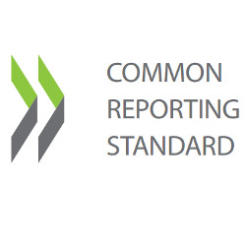Many grant-givers will “be really horribly affected” by an “onerous” new international transparency regime, a tax conference heard last week.
The Common Reporting Standard (CRS), which asks financial institutions to report on account holders as a method of preventing tax evasion, came into force at the beginning of this year, and will place a significant administrative burden on grant-making charities in particular.
Alana Petraske, special counsel at Withers, told the Charity Tax Group’s annual conference last week that CRS, which is applicable to charities, is “potentially going to have quite an onerous impact on some charities, but not on all”.
The Organisation for Economic Co-operation and Development (OECD) is responsible for the regime, and the OECD “expressly, for policy reasons, did not exclude charities”, unlike the US regime it based on, which is known as FATCA.
Petraske said it was “a conscious decision made for policy reasons to move away from FATCA and bring charities into the transparency regime”.
For the sake of CRS, charities can be considered as financial institutions, and their grantees as account holders. The CRS means that that have to report and do due diligence on all grants.
Petraske told delegates that it is “probably grant making charities that will most likely to be caught as financial institutions”. She said: “All of their grantees, where ever they are located in the world, will be people that are account holders, and that includes UK people and individuals.”
She also said that even if a charity is not a financial institution, it is still going to be in the scope of the regime, because it will be asked by other financial institutions, like banks, to provide more information.
She said that we are currently in a reporting period on CRS, with reports taking place next year. She said: “Although it may be tempting to delay your engagement with CRS because this year is only reporting, but next year if you are caught you’ll have had to been gathering the necessary data in order to do your 2017 report”.
Petraske said that this “will be a big administrative burden for those charities that are financial institutions” and will be “very counter-intuitive and technology heavy”, due to the regime being designed with “proper financial institutions, not charities, in mind”.
She referenced charities giving grants to individuals, such as refugees, as an example of where it may be difficult, or even harmful for the grantee, to get them to self-certify their tax status.
John Hemming, chair of the Charity Tax Group, said: “It came as a surprise to all of us how far this could go”.
He said he had initially thought the regime would only apply to overseas grants, but that it now appeared that domestic grant-givers would also be caught, because they would have to prove they were not making grants overseas.
He said: “You’ve got to demonstrate that UK people are UK people, so you have to ask them the same questions.”
Petraske wrote about the burden of the Common Reporting Standard for Charity Finance magazine.
For information on subscribing to Charity Finance magazine, click here.









